100 years in service of curiosity and the pursuit of knowledge
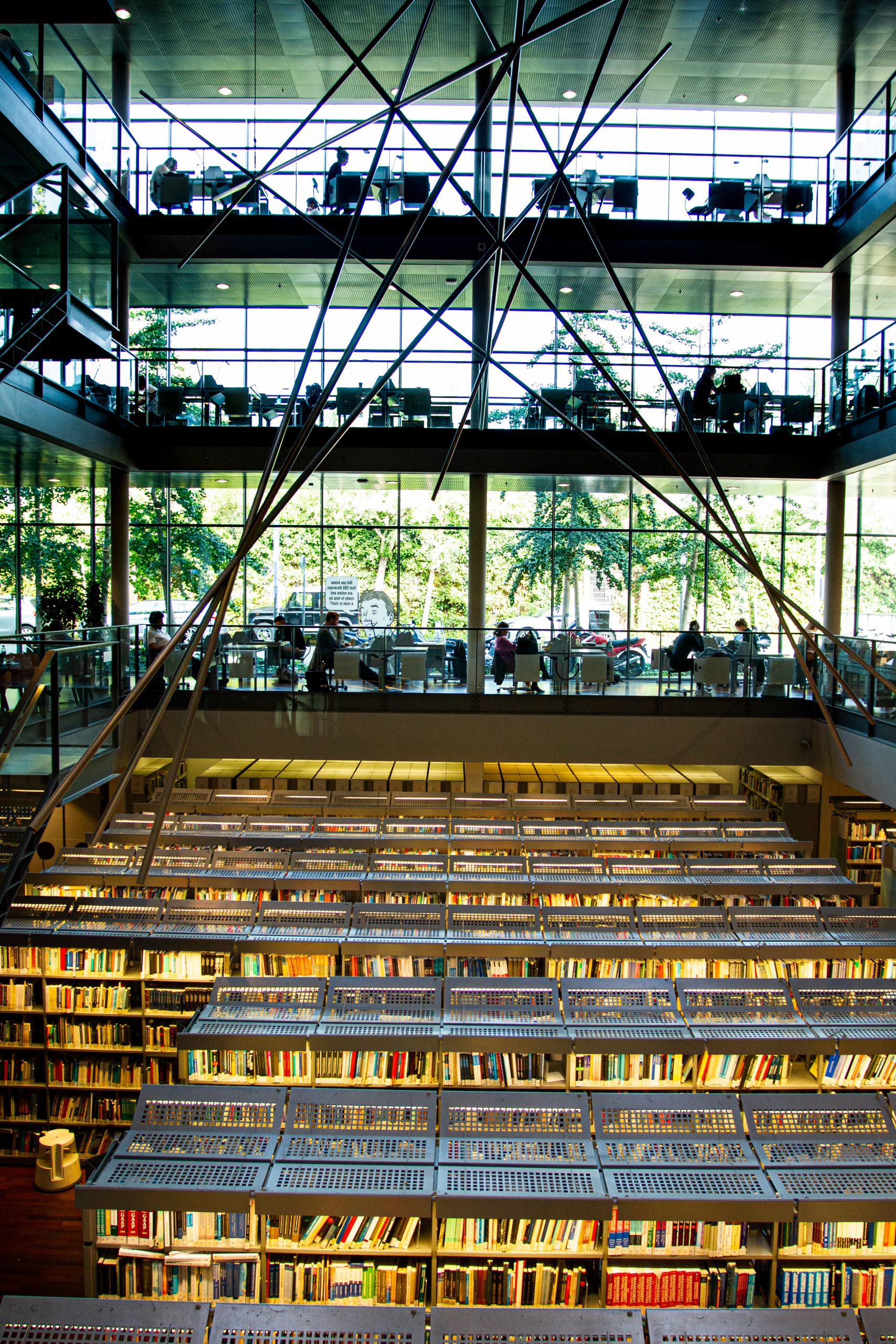
(Photo by Anna Holte)
For a whole century, the CBS Library has been readily assisting students and researchers in gaining knowledge and finding a sanctuary. The centennial has given staff a great chance to explore the library’s rich history and purpose through the years, and also plan a grand celebration.
Turning 100 years old might usually be associated with being out of touch or conservative, but over the years, the CBS Library has been transformed from a solely physical environment into a 95% online experience. Yet, plenty of students are still walking through the library doors.
In the beautiful, modern building on Solbjerg Plads, the atmosphere is both intense and solemn on the different floors of the specially designed library, as you walk past crowded reading and study halls with students cramming before class and exams. They look up only to take a break or frown if you disturb their concentration. Nothing can make you feel as small but adventurous at the same time as a library – the heart of any university. And at CBS, every inch is designed to enhance and enable university life.
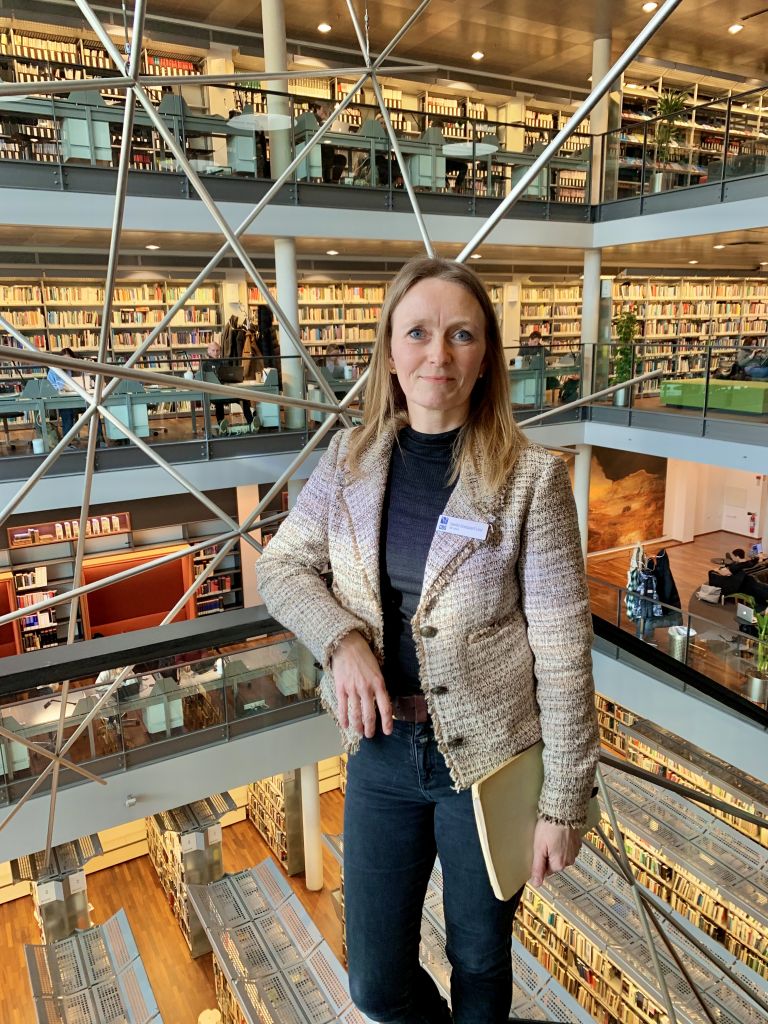
Camilla Boelsgaard Lund is a Librarian with focus on – among other things – Promoting the library’s online presence and usability. (Photo by Signe Mereta Lauesen)
“We could probably fill the whole of Solbjerg Plads with study seats,” says Camilla Boelsgaard Lund, librarian at CBS Library, with a smile and continues:
“There is a really good atmosphere here, and I have the impression CBS students enjoy being here, immersing themselves in the academic environment the university library radiates.”
Book donations
CBS, once Handelshøjskolen, was founded in 1917 but back then, students at CBS had only access to the library at Købmandsskolen, where the selection did not quite cover the syllabus at CBS. So, sometime in 1922, the students at CBS finally got their own reference library and small library spearheaded by Knud Larsen, the library’s first Head Librarian.
“It was a very small collection of only 1,250 books. Today, we have more than 200,000 books,” says Camilla Boelsgaard Lund
At some point in the late 1920s, the library merged with CBS on Julius Thomsens Plads, where it played a role during the second world war.
Initially, most of the collection was obtained through donations. For instance, the collection doubled in size in 1930, when the former minister of finance, Christopher Hage died and bequeathed his private library to CBS. Some of these books still feature in the CBS collection today.
Camilla Boelsgaard Lund can hardly conceal her enthusiasm for the library. Mostly because she is holding a symbol of its importance tight in her hands in the form of an old book. As she talks, her love for her work shines through.
The centennial has been a great opportunity for her and her colleagues to explore what has actually been preserved over the years, and she recently discovered a guide for students called Biblioteksorientering: For handelshøjskolens studerende (Library orientation: For business school students) written by the library’s first head librarian, Knud Larsen – the man who spearheaded the founding of the library in 1922.
“When you start digging, you often find something interesting. Back when the library was founded, a library guide like this was essential for students to know where to find the material and books they needed. Consequently, this particular book sold out and a second edition was printed. Today, that has all been replaced with computers and databases,” says Camilla Boelsgaard Lund.
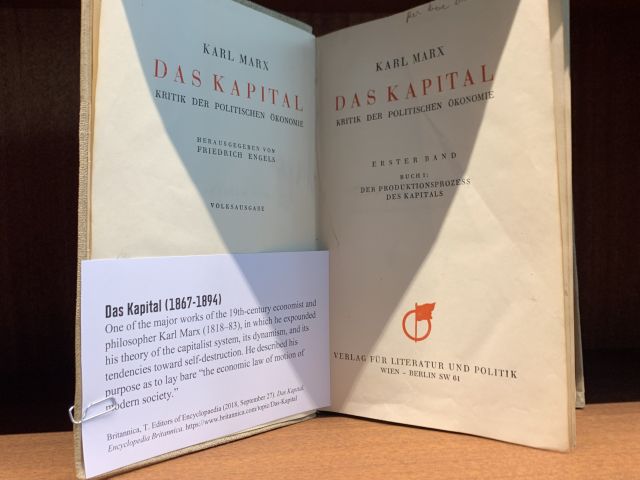
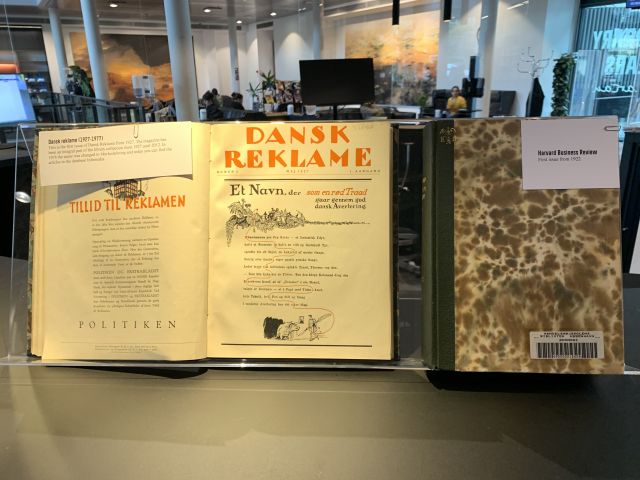
“Our library has always been based on topicality, with books being constantly weeding out and replenished. Of course, this means that we don’t have that many old books left, but we do put aside books we consider worth preserving. Our main objective is for our collection to always be relevant and up-to-date on current knowledge,” says Camilla Boelsgaard Lund.
Digital revolution of knowledge
According to Camilla Boelsgaard Lund, the library at CBS has never shied away from embracing modern ideas and technologies. Already in the 1960s, the library collection management was computer-based, using punch cards, and in the 1990s, the library helped lead the IT boom by starting an IT center for its users and even created its first web-based search interface for library holdings (Hermes) in 1998.
“The jump from the painstakingly slow process of looking through index cards for books to implementing computers and online resources has transformed the role of libraries the most. During library introductions, the students are told that more than 95% of the material we provide access to is now online. So, our 200,000 books in the basement are just a drop in the ocean of titles CBS students can access through the library today,” says Camilla Boelsgaard Lund.
And as time goes by, the digital development is accelerating. So far, access to more than 40,000 journals and millions upon millions of articles is vailable.
A lot of the day-to-day work involves teaching library users how to benefit from what the library has to offer and making the CBS research data accessible. The latter is part of an international agenda within academia to create transparency through Open Science, Open Access and Research Data Management.
“Teaching is in our DNA and something we have always done. We also highly prioritize supporting our researchers. Trends show that large research data collections are increasing in size, and in order to save and share that data, it must be managed correctly.”
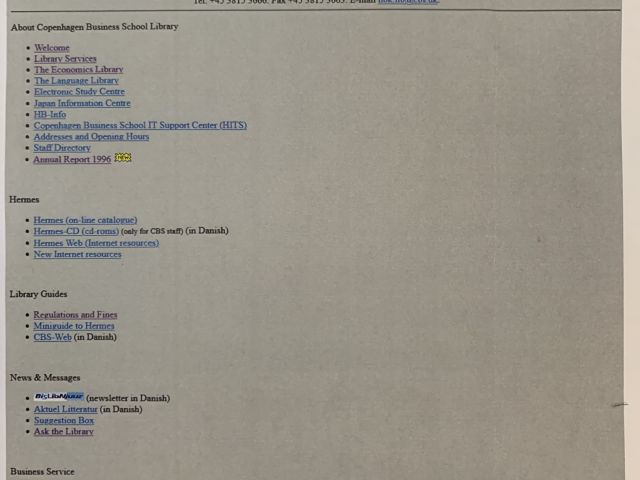
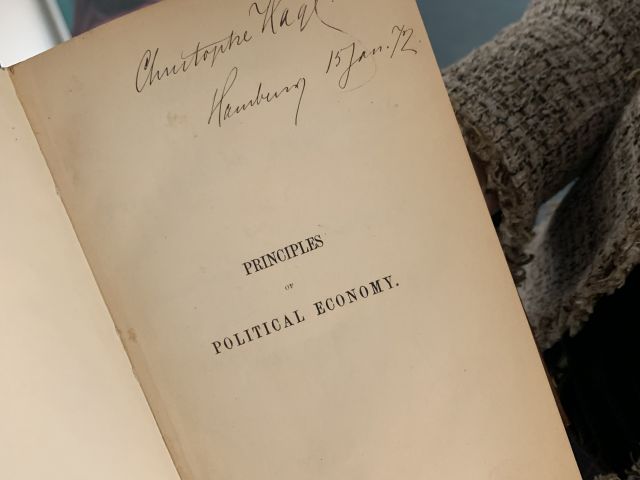
“We’ll be supporting this even more in the future, and some staff members have taken the time to master this skill,” says Camilla Boelsgaard Lund.
Though the library is also open to the public, its main focus has always been on the needs of students and researchers.
“To us, remaining a social anchor, close to our students, and a place where people can come by and work is important. We prioritize continuously adapting our facilities to fulfil users’ needs. Our role today is very diverse but still involves facilitating democratic access to knowledge,” says Camilla Boelsgaard Lund.
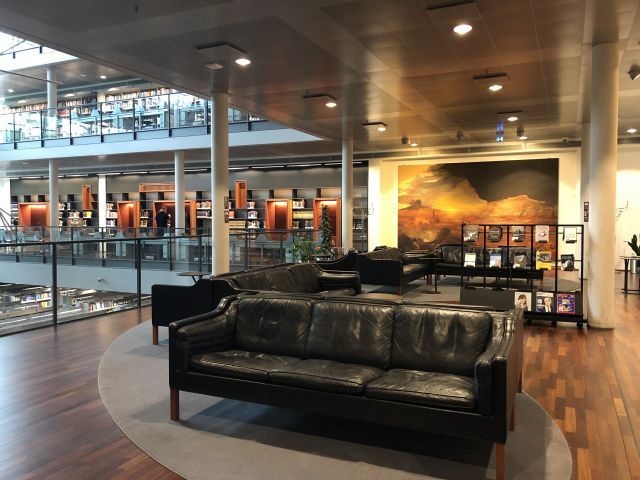
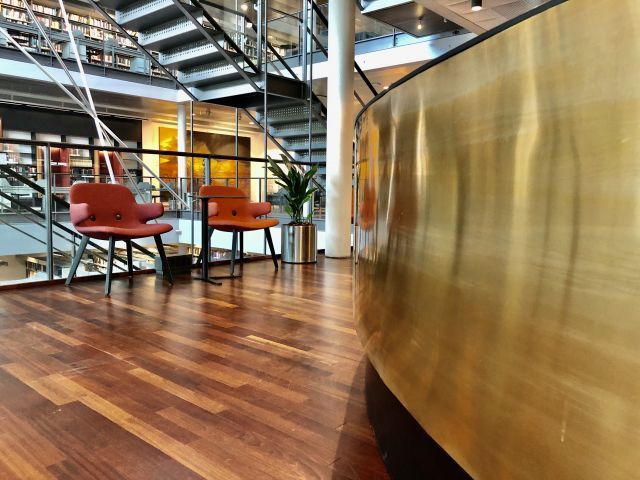
“We always have all the syllabus material in stock. Then students can follow their curriculum even if they cannot afford to buy all the books they have to read. And we recently launched a project that enables teachers to streamline the process of creating course reading lists in Canvas linked directly to the library database Libsearch. It has been a great success so far and we are happy to help make life simpler.”
A celebration with surprises
The exact date when the library was founded has been lost over time, but this loss is being turned into a gain.
“Because we don’t know the exact date, we have decided to make the whole year a celebration,” smiles Camilla Boelsgaard Lund and continues:
“Throughout the year, we will host a number of events where researchers and educators from CBS will deliver talks about their fields from a historic perspective. The first of these events will take place in April. In October, we’ll have a grand event for the students. What will happen is a secret, but I can say that it will be great.”


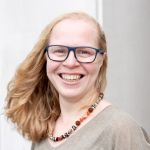
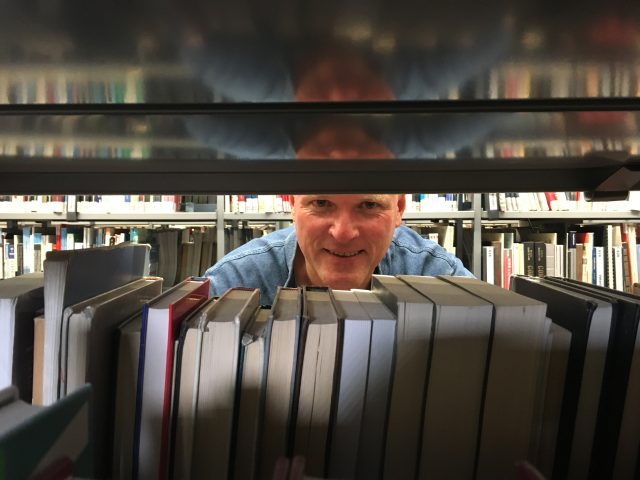
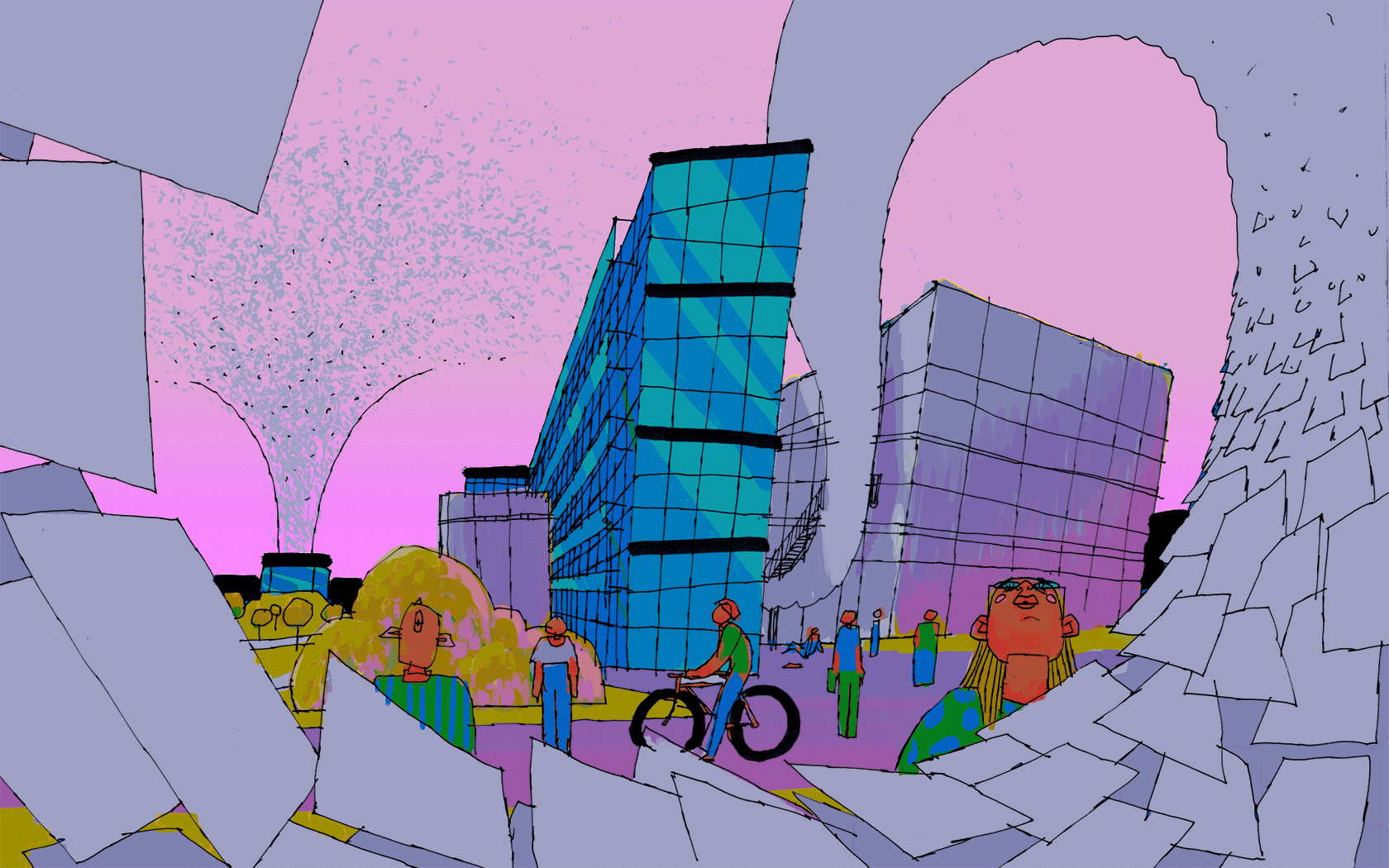
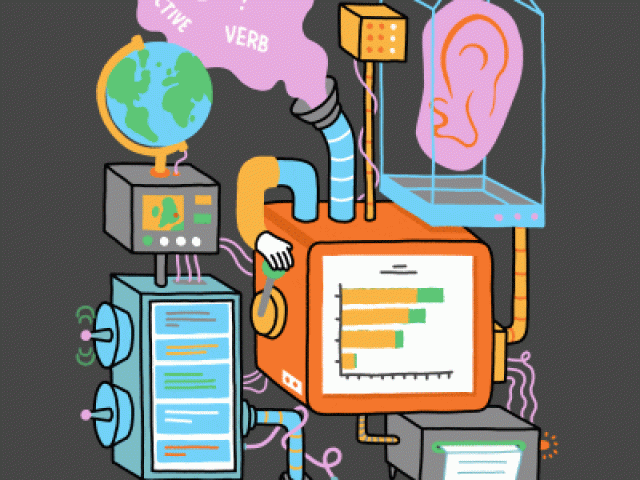
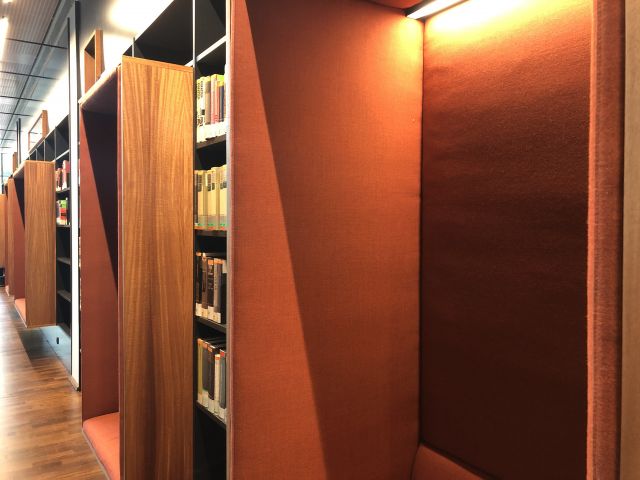

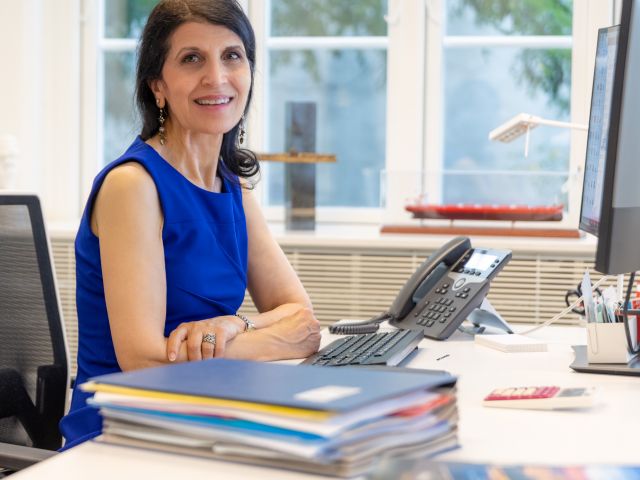
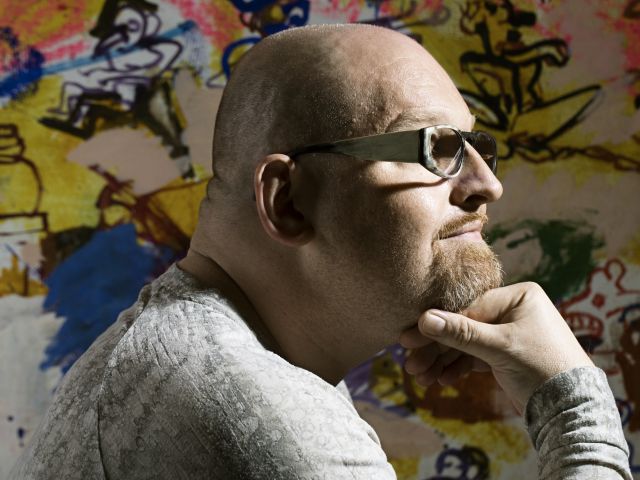






























































































































Comments